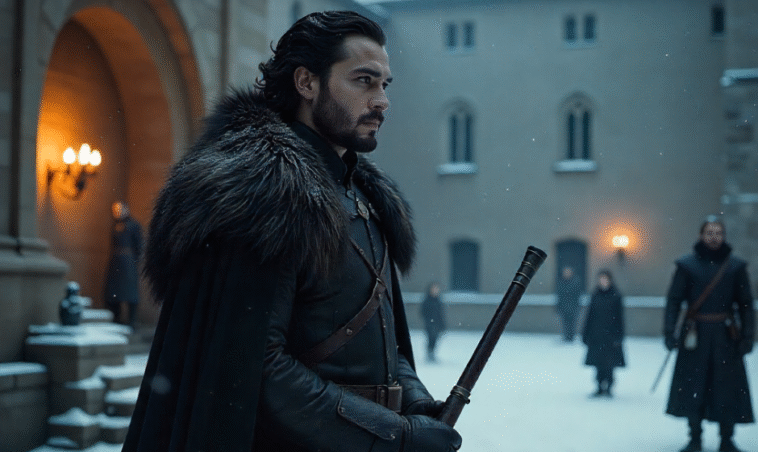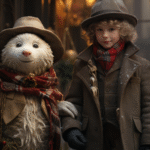The HBO phenomenon Game of Thrones reshaped modern television with its sweeping fantasy world, unforgettable storylines, and morally complex characters. Unlike traditional fantasies that separate good and evil cleanly, Game of Thrones thrives on shades of gray. Heroes are flawed, villains can be sympathetic, and loyalty often comes at a steep price.
Fans still debate questions about who the real heroes and villains of Westeros were. Was Jon Snow truly the noblest? Was Cersei Lannister purely evil or a survivor shaped by her world? Did Daenerys Targaryen become the villain in the end—or was her fate inevitable?
In this in-depth ranking, we’ll explore the Game of Thrones character across the spectrum, from the most heroic figures to the darkest villains. Along the way, we’ll evaluate their actions, motivations, and legacies while drawing comparisons that even resonate with the cast of House of the Dragon, who carry forward this epic legacy of complex morality.
Heroes of Westeros: The Noble Few
Jon Snow – The Reluctant Hero
Jon Snow embodies the archetype of the reluctant hero: a man who never sought glory but who was repeatedly placed in positions of leadership. His selflessness in joining the Night’s Watch, his courage in facing the White Walkers, and his role in bringing together the divided people of Westeros won him admiration.
Despite his heroism, Jon’s naivety frequently placed him in danger. Trusting too easily, particularly with Daenerys, became his undoing. Still, he is widely regarded as the moral compass of the show.
Arya Stark – The Assassin with a Code
Arya Stark began her journey as a defiant child refusing to conform to traditional gender roles. Through trials with the Faceless Men, Arya became a skilled assassin. What makes Arya heroic is not her capacity for violence—it’s her continued dedication to protecting the innocent and avenging wrongs against her family.
Her role in defeating the Night King secures her place among the most heroic figures in Game of Thrones.
Brienne of Tarth – The Knight of Honor
Few characters epitomize honor as much as Brienne. She lived her life mocked and rejected, but she held fast to her ideals. Her unflinching loyalty to Lady Stark, her knighting by Jaime Lannister, and her defense of those unable to fight for themselves confirm her as a genuine hero.
Her bittersweet relationship with Jaime also humanized her, showing vulnerability amidst unwavering strength.
Samwell Tarly – The Scholar Who Saved the Realm
While Samwell was never a warrior, he made crucial contributions: discovering dragon glass could kill White Walkers, identifying Jon Snow’s parentage, and preserving history. His intellect and bravery of a different kind made him one of the unsung heroes.
He’s proof that courage comes in many forms—not just in battle, but also in knowledge and empathy.
Davos Seaworth – The Honest Broker
Known as the Onion Knight, Davos is one of the few characters who remained honest, loyal, and pragmatic. His rise from smuggler to trusted Hand of the King demonstrates integrity that most lords of Westeros lacked.
His dedication to protecting the innocent, especially children like Shireen Baratheon, cements his place among the most heroic.
Characters Straddling the Line
Jaime Lannister – The Kingslayer’s Redemption
Introduced as arrogant and cruel, Jaime’s character arc surprised fans with its depth. From pushing Bran Stark out of a window to saving Brienne from a bear pit, Jaime constantly walked the line between hero and villain.
By the final seasons, his moral ambiguity turned into full-circle tragedy. He never truly escaped Cersei’s influence, but his moments of courage made him one of the most layered characters.
Daenerys Targaryen – The Liberator Turned Tyrant
Daenerys embodied hope for much of the series. Freeing cities, breaking chains, and embodying fierce justice, she inspired countless fans. Yet her descent into madness, culminating in the fiery destruction of King’s Landing, turned her into the show’s most controversial character.
Daenerys exemplifies how power corrupts even those who begin with noble intentions. Her story resonates with House of the Dragon, where ancient Targaryen struggles also reflected ambition, fire, and tragedy.
Sandor Clegane “The Hound” – The Cynic with a Heart
The Hound was brutal and pragmatic, yet he displayed humanity through his care for Arya and moments of protecting the weak. His discomfort with knights’ hypocrisy also gave him moral complexity.
His final showdown with his monstrous brother, The Mountain, symbolized his redemption arc. He died not as a cold killer, but as someone who had found justice.
Tyrion Lannister – The Clever Misfit
Tyrion was always walking a knife’s edge between nobility and cynicism. His wit, strategic mind, and empathy made him beloved. However, his loyalty to Daenerys toward the end clouded his judgment.
Still, Tyrion contributed significantly to peace in Westeros, proving that intellect could wield as much influence as a sword.
The Villains of Game of Thrones
Cersei Lannister – The Queen of Ruthless Survival
Cersei was one of television’s greatest villains, marked by her cunning, survival instinct, and disregard for morality. From orchestrating Ned Stark’s death to blowing up the Sept of Baelor, her thirst for power left devastation behind.
Yet, her moments of vulnerability as a mother made her portrayal more layered than a traditional villain.
Joffrey Baratheon – The Sadistic Boy King
Cruel, entitled, and sadistic, Joffrey remains one of the most hated characters in television history. His brutal orders, including the execution of Ned Stark, cemented his place as a villain with no redeeming qualities.
His poisoning during the Purple Wedding was celebrated by fans as an overdue end.
Ramsay Bolton – Wicked Beyond Redemption
If Joffrey was hated for his sadism, Ramsay raised the cruelty bar even higher. Known for psychological torture, mutilation, and manipulation, Ramsay embodied pure evil.
His downfall at the Battle of the Bastards, fed to his own starving hounds, was one of the most satisfying moments for viewers.
Petyr Baelish “Littlefinger” – The Master Manipulator
Littlefinger thrived in shadows. His schemes initiated much of the conflict in Westeros, from betraying Ned Stark to sparking conflicts among houses.
While he was intelligent, his ambition lacked empathy. Ultimately, his downfall at the hands of Sansa and Arya highlighted that manipulation has limits.
The Night King – Ice Personified
The ultimate villain, the Night King represented death itself. He spoke no words and showed no empathy, but his presence embodied looming terror.
Arya Stark’s slaying of the Night King remains one of the most iconic sequences of the series, symbolizing light overcoming darkness.
Ranking Summary: From Noble Heroes to Ruthless Villains
Heroes: Jon Snow, Arya Stark, Brienne of Tarth, Samwell Tarly, Davos Seaworth
In-Between: Jaime Lannister, Daenerys Targaryen, Sandor Clegane, Tyrion Lannister
Villains: Cersei Lannister, Joffrey Baratheon, Ramsay Bolton, Littlefinger, The Night King
This breakdown demonstrates the show’s genius: no one is entirely good or evil. Each character reflected complex human nature and the consequences of power.
Lessons from Game of Thrones
- Power corrupts – exemplified by Daenerys and Cersei.
- Honor can be costly – as seen with characters like Ned Stark and Brienne.
- Survival often comes first – the philosophy guiding Tyrion, Jaime, and Sandor.
- Evil may win battles but never the war – Ramsay, Joffrey, and the Night King met fitting ends.
The enduring appeal of Game of Thrones lies in these blurred moral lines. Unlike most shows, it dares to pose uncomfortable truths about humanity.
Conclusion: The Legacy of Game of Thrones Character
Ultimately, Game of Thrones remains a cultural landmark because of its characters’ complexity. It forced audiences to question their own notions of morality, loyalty, and justice. Some figures inspired hope, others instilled fear, but all left a mark strong enough to spark endless debate.
Even with the success of the cast of House of the Dragon, the characters of Game of Thrones remain iconic benchmarks in modern storytelling.
FAQs
1. Who is the biggest hero in Game of Thrones?
Jon Snow is often considered the series’ hero, though characters like Arya Stark and Brienne of Tarth also embody heroism.
2. Who is the most hated Game of Thrones character?
Joffrey Baratheon and Ramsay Bolton are widely regarded as the most hated due to their cruelty and sadism.
3. Did Daenerys Targaryen become a villain?
Yes, her destruction of King’s Landing turned her from liberator to tyrant, showcasing her tragic downfall.
4. Who was the smartest character in Game of Thrones?
Tyrion Lannister, with his wit and political instincts, is often called the smartest character in Westeros.
5. How does Game of Thrones compare to the cast of House of the Dragon?
While House of the Dragon explores earlier Targaryen struggles, it mirrors themes of power, betrayal, and consequence familiar from Game of Thrones.
6. Who was the ultimate villain in Game of Thrones?
The Night King embodied ultimate evil, but human villains like Cersei and Ramsay added more grounded terror.
7. Why is Game of Thrones considered so impactful?
Because it blended fantasy spectacle with real human flaws, creating characters both inspiring and disturbing, keeping audiences emotionally invested.





Feeling like a VIP? Dreamjilivip seems to cater to that. Higher stakes, better bonuses, the whole shebang. If you’re looking for that premium experience, this might be up your alley. Check it: dreamjilivip
Alright, so I checked out win888betlogin. It’s pretty straightforward to get the hang of. Not the flashiest site, but it gets the job done. Give it a shot if you’re looking for something simple and reliable. Check it out here: win888betlogin
I’ve been playing on winn444 for a bit now. Site’s pretty solid, good selection of games. Could use a few more promos, but overall I’m happy. Check it out: winn444
SSBET, yeah, heard about it. Seems alright, not a scam or anything. Don’t expect to get rich overnight! Find it : ssbet